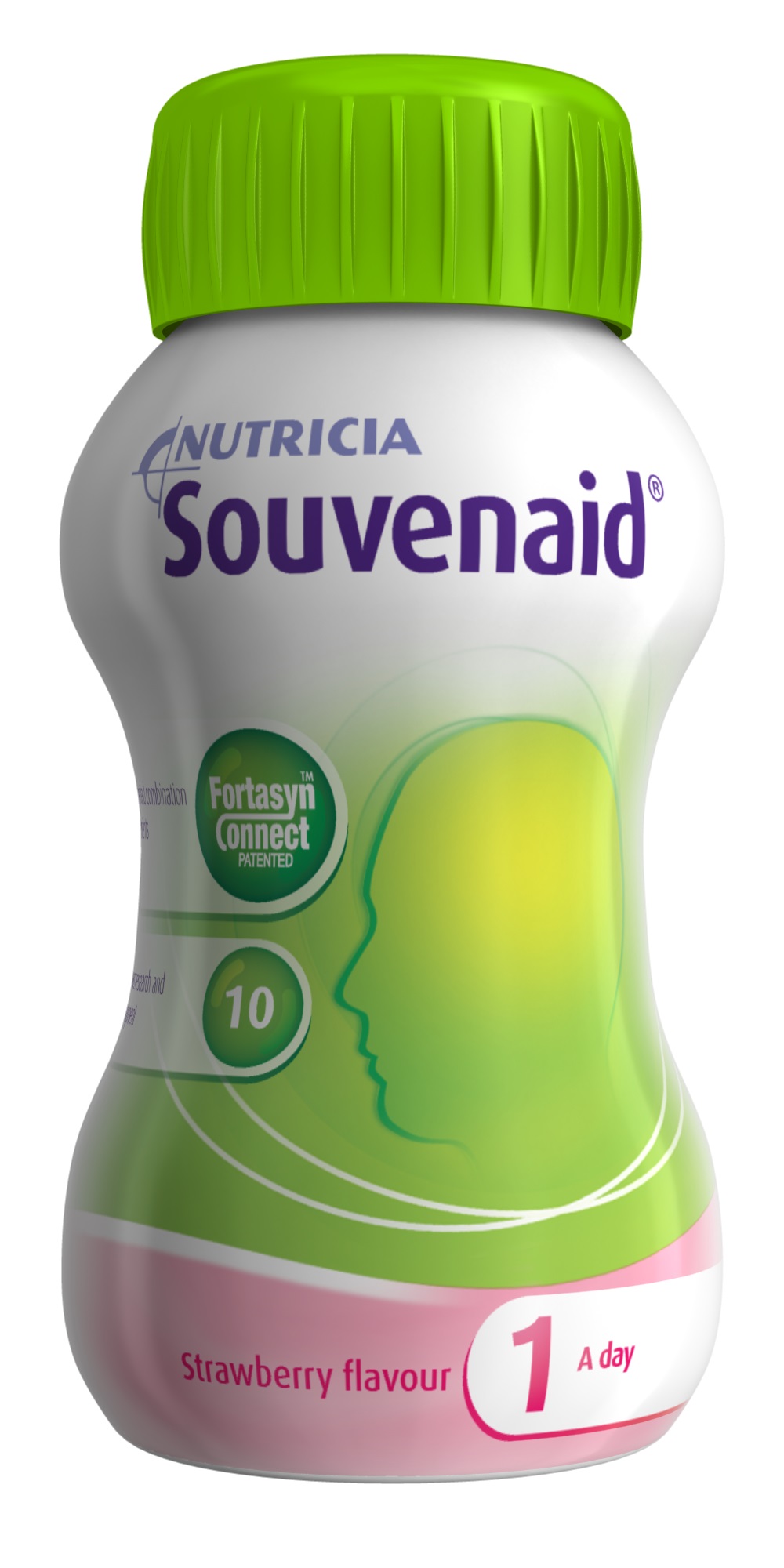
New hope for the 62,000 people who are developing Alzheimer’s disease each year
As the government sets out to prioritise earlier diagnosis of dementia, of which Alzheimer’s disease is the most common form, the importance of nutrition during the disease will become more vital, as it provides an opportunity for people and their families/carers to take some control at an early stage. This ties in with the launch of an innovative nutritional drink for the dietary management of early Alzheimer’s disease. The drink, named Souvenaid, is the result of over 10 years’ research by leading neuroscientists into the nutritional needs of people living with the early stages of the disease.
Alzheimer’s disease currently has limited management options, yet it is a growing problem in an ageing population. Around 800,000 people in the UK are currently living with dementia, with this figure expected to rise to 1.7 million by 2050. The current healthcare provision for people with early Alzheimer’s disease fails to reflect the important role that nutrition can play in managing the disease.
One of the key features of early Alzheimer’s disease is a loss of connections in the brain (known as synapses). These connections are essential to normal brain function as they allow brain cells (neurons) to share information. A combination of nutrients are required in the process of making new connections, in particular three key nutrients – DHA, choline and uridine (UMP) – work in synergy to support the production of synapses in the brain. People living with Alzheimer’s disease have been shown to have relatively low levels of these nutrients despite eating a normal diet. This adds to a growing body of evidence that highlights how nutrition can help manage the disease in the early stages.
Good nutrition is important to health, irrespective of age or disease. Like other parts of the body, the brain depends on the availability of ‘building blocks’ from nutrients that can be found in a normal diet in order to thrive. Unfortunately, despite eating a normal diet, people living with Alzheimer’s disease have been shown to have relatively low levels of key nutrients in their bodies that are required in the process of making new connections in the brain. Souvenaid contains a unique patented combination of nutrients at levels which are difficult to achieve from diet alone, including omega-3 polyunsaturated fatty acids (docosahexaenoic acid (DHA), eicosapentaenoic acid (EPA)), uridine (as uridine monophosphate (UMP)) and choline, together with phospholipids, B vitamins, vitamin C, vitamin E and selenium.
Dr Nick Smith, Head of Medical and External Affairs, (Neurology), Nutricia Advanced Medical Nutrition, comments: “It is important that people living with Alzheimer’s disease and their carers are able to feel in control during the early stages of this disease. Souvenaid offers a new nutritional option for them, alongside both conventional management and lifestyle approaches”.
Dr David Wilkinson, Consultant in Old Age Psychiatry, commented: “Alzheimer’s disease is not part and parcel of aging but a serious and progressive disease of the brain which prevents us from being able to retain new memories. As we age, our bodies become less efficient at processing essential nutrients, meaning that we need to increase our intake of food to absorb the same amount of nutrients in order to maintain a healthy body. In the same way, we need the right nutrients for our brains to keep them healthy”.
“Alzheimer’s disease sufferers often find it very difficult to get everything they need through diet alone and the nutritional intervention by the consumption of Souvenaid offers a promising option for the management of early Alzheimer’s disease”.
Souvenaid is a “Food for Special Medical Purposes”, for the dietary management of early Alzheimer’s disease. It should be taken as part of an Alzheimer’s disease care plan. People with early Alzheimer’s disease must speak with a doctor, specialist nurse, dietician or pharmacist to see if Souvenaid is right for them.
It takes time for these nutrients to be taken up and used by the body, so there is no noticeable effect straight away. Therefore, it is important to keep taking Souvenaid every day to ensure a continuous and adequate supply of important nutrients for the brain. Normally Souvenaid is taken continuously every day for at least 3 months, however, people living with early Alzheimer’s disease should discuss how long to take Souvenaid with their healthcare professional.
Souvenaid, a new nutritional drink for the dietary management of early Alzheimer’s disease comes in two pleasant tasting flavours (vanilla and strawberry) and is designed to be incorporated into the daily routine, such as taking it at breakfast. Please visit www.souvenaid.com for more information



You must be logged in to post a comment Login